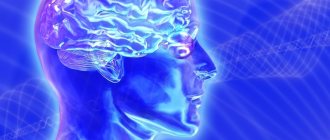In sociology, psychology and a number of other sciences, terms such as “person”, “personality”, “individual” and “individuality” are widely used. Many perceive them as synonyms, but each of these words has its own meaning and implies a specific set of characteristics. Therefore, these terms are not interchangeable and the context should be well understood when using them. Today we will analyze in detail how they differ from each other and how not to make mistakes when using these words in your own speech.
Definitions
- Man is a social being with consciousness and intelligence. This concept can have a biological or physical meaning. At the same time, it is the most generalized, so this word can designate both a very concrete person and an abstract one.
- An individual is a separate representative of the human race. This word denotes an individual unique person, abstracting from his morphological, psychological and social characteristics. It is obvious that an individual has a certain set of unique qualities, but within the framework of this concept they are insignificant.
- Individuality is a set of biological, psychological and social properties that make up the uniqueness of an individual, make him unique and distinguish him from other people. The components of individuality are temperament, character, intelligence, worldview, accumulated knowledge and life experience, morphological and other properties.
- Personality is a set of social qualities of an individual, which he one way or another realizes in his social life. This word can be used as a characteristic of an individual, or to designate a specific person in the context of studying his social characteristics.
Now let’s look at each of these concepts in more detail in order to more accurately understand how they differ, what they have in common, and in which cases which term should be used.
Properties that characterize an individual
Each concept has its own special features that it possesses. The thing is that in psychology the term “individual” can be characterized by a number of properties. First of all, these are: gender, age category, body features, and characteristics of the functioning of brain activity. Secondly, other inclinations of a person, for example, the type of temperament, can be safely attributed to the properties of an individual. Age qualities can determine a number of characteristics of a person that identify him, the process of his formation as a result of ontogenesis.
Sexual characteristics are the distinctive features of gender. One can name a number of individual-typical parameters that are presented from the point of view of general somaticity, or as constitutional qualities that have neurodynamic distinctive features. Neurodynamic characteristics in this context should be considered as separate aspects of the human psyche.
Human
As we have already found out above, a person is a general concept that denotes a social being with consciousness and intelligence. Man was formed as a result of evolutionary development, as well as a number of socio-historical processes. Using this term, we usually mean a representative of the human race with all the qualities and characteristics inherent in the biological species Homo Sapiens (reasonable man).
From a psychological point of view, the term “human” combines biological and general social characteristics, as well as the ability to engage in various activities specific to a given biological species.
From a biological point of view, a person is a creature that differs from other mammals in such features as:
- upright posture and special body structure;
- using articulate speech to communicate;
- the presence of consciousness, the ability to understand the essence and cause of various phenomena;
- the ability to meaningfully and purposefully perform complex work in order to obtain a certain result (and not obeying instincts, as happens in animals);
- the ability to create and use tools.
From a philosophical point of view, a person is an integral system that has physical and mental principles, determined genetically. This is the unity of biological, social and spiritual qualities.
To remember how the concept of “person” differs from the concept of “personality”, you should understand one simple thing: a newborn child is already a person, since all the elements of human nature are inherent in him. At the same time, he becomes a person later - in the process of socialization, when he acquires his own individuality.
What does “outstanding personality” mean in social studies?
We come across all the terminology listed above at school. But the basis for everything is human predispositions. The structure of human development can be presented sequentially as follows:
- Congenital prerequisites - physical and genetic characteristics.
- Upbringing, communication, political situation, cultural influence or lack thereof.
- Perception of social taboos, prohibitions, requirements, norms, traditions, rituals.
- Self-adjustment of behavior.
- Active exploration of the world through books, textbooks, films and communication with people.
- Forming your own opinions, beliefs, postulates.
Points 5 and 6 can alternate endlessly. This is a normal tendency for a mature personality. With the progress of knowledge, changes occur. If they have not been there for 30-40 years or more, we can talk about orthodoxy and rigidity of thinking.
An “outstanding personality,” according to a social studies textbook, has the following qualities:
- strength of will;
- determination;
- extraordinary abilities, including mental and physical.
Individual (and individuality)
This term has a special meaning in such scientific disciplines as social science and law. An individual is a single and very specific representative of the human race. It is implied that each individual has a unique set of anthropological and psychological characteristics, but these are bracketed.
From the point of view of law, an individual is a subject of legal relations, a bearer of rights and obligations , considered as a legal abstraction. His appearance, character, life experience, health, personal qualities and other characteristics do not matter. A significant property is its legal capacity.
In social science, an individual means a person as a certain statistical unit of society, possessing a certain social status and position, engaged in some kind of activity. In essence, an individual is a “technical characteristic” of a person, a certain “identifier” that makes him unique. The child receives the status of “individual” immediately after birth (although this is a controversial issue, and many authors believe that the fetus in the womb can be considered an individual already in the second month of pregnancy, since by this time its nervous system is formed).
From the point of view of psychology, each individual has individuality - a special set of properties and characteristics that determine his uniqueness and originality. However, the concepts of “individual” and “individuality” should not be confused. An individual is a person, and individuality is his unique characteristic. It determines such characteristics as preferences, interests, behavior, etc.
Thus, a person is born an individual, but does not yet have individuality. It is formed as he grows up under the influence of the environment in which he grows and socializes. In fact, the formation of individuality and personality occurs in parallel, but these concepts should not be confused either.
What is individuality?
All manifestations can be divided into three large groups. These are the features:
- External. These include the uniqueness of the anatomical structure, the chosen style, and the way of dressing. Having an individual style means having a subtle feel for the combinations of clothes, shoes, and jewelry. Make sure that the image corresponds to the internal content and reflects it.
- Behavioral. These include: habits, habits (including negative ones), gait, non-verbal verbal methods of communication. These are any actions that are expressed through behavior. They are completely controlled by the individual. Although sometimes subconsciously.
- Mental. These include the expression of emotions, as well as resentment, anger, and envy. Their positive individual traits are humor, resourcefulness, perseverance, and good memory.
Talent needs to be highlighted separately. This is what distinguishes us greatly and qualitatively from the majority. While many people have creative abilities, often acquired over several years, there are very few truly talented performers, actors, and artists. They can definitely call themselves an individual.
Ask a question
Personality
Personality is a concept used primarily in psychology. This is a subject with self-awareness, emotional experiences and the ability to know. Personality is formed exclusively in the process of socialization, and its basic properties are manifested in interaction with other individuals. From a psychological point of view, one of the key personality properties is the ability to play a certain role that meets the expectations of others.
The main characteristics of a personality are its potentials:
- creative – the ability to purposefully create material and intangible values;
- cognitive – the ability and desire to learn;
- communicative – the ability to interact with other individuals and develop through this interaction, while maintaining one’s own identity;
- value - a system of values, ideals, aspirations and beliefs acquired by an individual in the process of socialization;
- artistic – the level of artistic needs of the individual, manifested both in the creation and consumption of works of art.
The basis for personal development is considered to be her ability to control her life, make strong-willed decisions and act rationally, guided by logic and common sense, and not by immediate desires. A person who copes well with this is called a strong personality.
Obviously, a five-year-old child cannot be a strong personality. He still does not understand why and for what he should deny himself momentary pleasures. In addition, he has not yet developed responsibility, since he has no idea how serious the consequences of a seemingly harmless act can be.
It also happens that a fully grown person is not a mature person. He submits to desires and cannot subordinate them to his will. However, he is not necessarily such a rake. This may be a decent person with a good education and job, whose personality is still in the process of formation.
Personality formation is a very long process that includes 4 key elements:
- choice of social roles and related functions.
- awareness of the rules of behavior in force in society.
- relationship building and other social skills.
- the ability to make decisions and be responsible for their consequences.
A person who is a mature personality is easy to notice. As a rule, he is quite independent and does not worry about what people think about him , so he does not try very hard to meet the expectations of others. But this does not prevent him from behaving with dignity. Thanks to this combination, others often choose such individuals as role models.
How and in what environment personality is formed
Personality is formed in the process of interaction with other people: parents, family, friends, teachers, work colleagues and others. The process of personality formation is long and complex, impossible without socialization. Socialization is the individual’s acquisition of values, rules of behavior and norms accepted by society.
Socialization begins in early childhood, when parents teach their children by example and educate them. While reading a fairy tale, the mother explains to the baby which heroes are bad, what good and evil are, and what a good person should do. Gradually, the child develops basic standards of morality, ethics, the concept of what is good and what is bad.
Socialization continues with entry into school. There, the child is influenced by teachers, classmates, and school administration. Gradually, a person’s social circle expands, he establishes contact with a large number of people. Socialization continues throughout life, that is, personality formation is a continuous process.
This means that personality changes over time, character or individual qualities change, and new physical and intellectual characteristics appear. Thanks to the knowledge of personality characteristics at each age, an entire science was created - Developmental Psychology. This does not mean that at a certain age people become the same, but they exhibit common features and qualities characteristic of a given age.
Example. It can be noted that adolescents in adolescence exhibit common character traits: hot temper, stubbornness, and susceptibility to the influence of peers. Old people exhibit other characteristics: slowness, constant worry about their well-being.
Differences between concepts
To summarize the above, let us list once again the main features and differences of the concepts under consideration. So, man is a general concept. Unlike the others, it can be used in a biological sense to refer to a member of the species Homo Sapiens. Moreover, in almost any context, the terms “personality” and “individual” can be replaced by the word “person”. But the statement will be more generalized.
An individual is a specific person. It is a technical or legal concept used in legal documents. It does not include any personal characteristics, but strictly indicates a specific person. From the point of view of law, an individual is a subject of legal relations (owner, heir, culprit of an accident). When we consider people as individuals, we consider them the same and neglect all their characteristics, except those that are important within the framework of the problem being solved.
A personality is a socialized person with character, temperament and worldview, actively interacting with other individuals. Personality does not arise on its own; it is formed through socialization that occurs in the process of growing up.
Individuality is a set of properties and qualities that make a person unique. It is formed in parallel with the personality. To better understand how personality differs from individuality, it is worth paying attention to what epithets these words are usually used with. About a person we can say that she is “strong”, “independent”, “independent”. Such epithets as “bright”, “memorable” or “unique” are more suitable for individuality.
How psychologists view this term
An individual is called the exact bearer of all the traits that are given to humanity. But in psychology, the term individual is characterized by the integrity of the psychophysical organizations of the body, its activity, as well as resistance to manifest actions.
A person lives as an individual from the beginning of his birth until the moment of death. This condition is the initial one on the planet from the point of view of its phylogenetic formation, as well as ontogenetic development. It is a concrete product of the creation of life, which actively interacts with a variety of surrounding criteria, and not a series of conditions that appeared suddenly. One thing is clear: it is impossible to consider a personality without close attention and emphasis on his individual characteristics.
They thus act as the foundation of human content. It is on them that a number of conditions for the development of each representative of the human race will depend, that is, on the inclinations that were invested in him at the genetic level. An individual has a number of basic functions, and specifically there are two of them. One is classified as conservation, thanks to which the process of distribution of energy and dynamic characteristics occurs, as well as a number of resource characteristics. But the other one is responsible for the function of so-called changes, from the point of view of plasticity of behavior.
Interrelation of concepts
All of the above related mainly to the differences between the concepts under consideration. At the same time, there is a relationship between all of them, which also cannot be ignored. The concepts of “individual”, “individuality” and “personality” can be considered as stages of a person’s personal evolution. Every person becomes an individual immediately after birth. As he grows up, he acquires individuality , which consists of genetically determined and acquired properties.
Personality and individuality are formed in parallel, largely under the influence of the same factors. As an individual develops psychologically, he acquires unique traits that help him interact better with society and the environment. At the same time, all three concepts are applicable to it, which characterize it from different sides. Each person is an individual, personality and individuality. And what to call it depends on the goals and objectives set.
What is individual?
The main difference is the lack of specific, unique features. This is a person who belongs to the crowd, has similar characteristics, conforms to basic stereotypes and is susceptible to public opinion.
Such a person has not grown personally. At the everyday level, we can cite the following traits of an individual who never became a person:
- inability to make decisions;
- lack of responsibility for events;
- low social adaptability;
- following the opinion of the majority;
- lack of point of view;
- the ability to manipulate the person in question.







